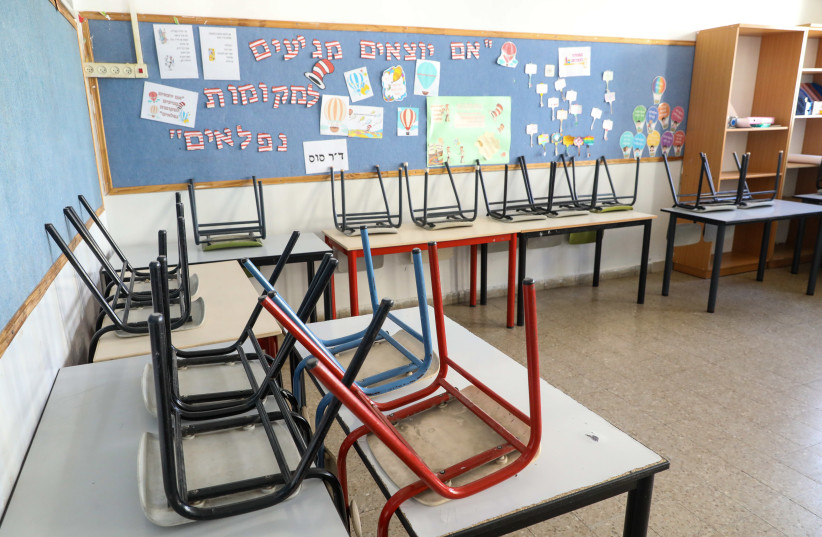High school students will strike across Israel and not show up to school on Tuesday if their teachers don’t lift the sanctions set in place to demand a pay rise, The Students and Youth Council announced this week.
“The students in Israel have been trapped for more than a year in the struggle between the Teachers Organization and the Finance Ministry and are being harmed in a number of ways by the Teachers Organization’s sanctions,” said the council. “To our surprise, the school year opened normally, but all the sanctions we’ve suffered from for a year are still here.”
As part of its demand for higher salaries, the Teachers Organization instructed its teachers to comply with a set of sanctions including not taking part in activities outside of school hours, not holding staff meetings, not supplying grades and report cards, and canceling school trips and Holocaust education trips to Poland.
“If by Monday evening, the sanctions have not been lifted, the National Students and Youth Council will go out on a warning strike in the high schools on Tuesday,” the council warned.
Teachers Organization: Finance Ministry failed to match verbal agreement
The Teachers Organization was expected to lift the sanctions when the new school year began after it came to agreements with the Finance Ministry at the last second on August 31. The agreement was not signed at the time, however, as the organization’s chairman Ran Erez said that the draft supplied by the Finance Ministry did not match the verbal agreements reached in meetings.

The agreement reached between the Teachers Organization and the Finance Ministry included a gradual raise of NIS 2,000, with the first raise of NIS 800 being paid in September’s paycheck. In return, the teachers had to agree not to strike for the next six years for salary-related issues.
However, Erez announced last week that the Finance Ministry said it would not pay the 800-shekel raise in September’s paycheck and as such, he instructed the teachers to continue with the sanctions.
The ministry will only pay the raise to teachers if an agreement is signed in three months, Erez said.
“If the agreement is signed, they’re willing to pay it retroactively.”
In response, the Finance Ministry said that the two sides needed to finalize the deal, and as soon as a deal is signed, the money will be paid to teachers retroactively. In the meantime, it would be possible to give the teachers bonuses, but this wasn’t promised.
The ministry also claimed that the Teachers Organization instructed teachers to continue the sanctions immediately after the agreement was made, and not after the dispute over when the first raise would be paid.
“The continuation of sanctions and the harming of students after understandings were made is not acceptable,” it said. “The Finance Ministry is now working to consolidate all the agreements into one deal and calls on the Teachers Organization to continue its cooperation in this matter without harming students.”
